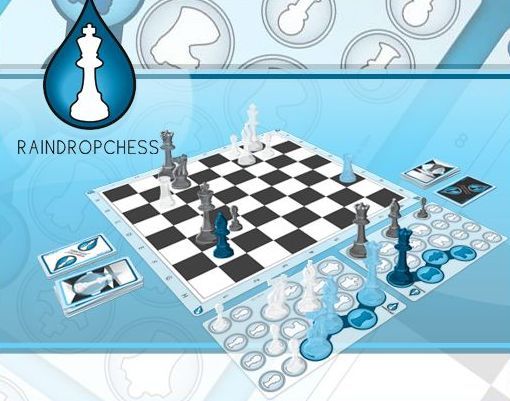"I feel it my duty to explain myself to the reader."
Nowadays, if you walk into any chess shop, you’ll see thousands of books with the same tried and true ‘updated and overanalyzed examples’ gathering dust on the shelf. Even though I understand that my book will likely take its rightful place in the depths of those same bookcases, I wrote it anyway. What is it that lurks behind this decision? Is it avidity? Vanity? Stupidity? Or perhaps maybe greed compounded by stupid vanity? What really was it that pushed me to make this childish mistake?
Once upon a time, after my immigration from a country of — at first constantly victorious, but then later vanquished — socialism, to a country of freedom and capitalism, I got a call from a fellow grandmaster. It wasn’t that we hadn’t seen each other recently. Rather, he called to discuss our diff erent opinions concerning whether someone can, in Russia, push people to attend unsanctioned meetings and marches — in the name of freedom and development — that would probably lead to their imprisonment. And we discussed this as those not personally ready to share their fate, but rather as those preferring to fight alongside those prisoners for the same freedoms, from the bitter configes of a diff erent country as an immigrant. Among other things during our discussion, he suggested I write a book. As he suggested several bright literary ideas, he also warned me that his friend, a publisher of chess literature, would send me a writing contract. Soon enough the contract showed up in my mail, and after some deep and anguished thought, tortured by foreboding, I signed it. It wasn’t that I was excited about writing this book, but I thought, rather, “What if…it somehow writes itself?”
Until of course it did no such thing. As the days went past the following year I blissfully forgot my literary obligations, until I was awoken from my cheerful ignorance by letters politely asking for the manuscript. Kindly explaining that the absence of said manuscript was thanks in large part to writer’s block, I tried to escape writing the aforementioned work, until I was shown a friendly document I had signed (the contract!), mentioning several of my promises. It became clear that I should fulfil my obligations. At least in this way I wouldn’t have to feel guilty about the trees that had been chopped down to make the paper ordered and purchased to print and advertise my book!*
Two years have passed since that day and the book is figally with us, which brings me immense pleasure. I decided to comment on my own games, among which are ones of significance. But as you will see, they are not necessarily grouped according to quality, but by specific topics. I chose those that featured unique, non-standard games, inventive approaches, as well as those involving less trivial evaluations. Sometimes the games cover more than one topic, which is something hinted at by the diagrams. For the sake of ease I wanted to show only a minimum number of variations, but at the same time I did not want to gloss over or skip any critical moments and mistakes. I also wanted to make the difficult seem simple and accessible, and to make the diagrams useful as training material for various levels of difficulty.
 Excerpt
Excerpt


